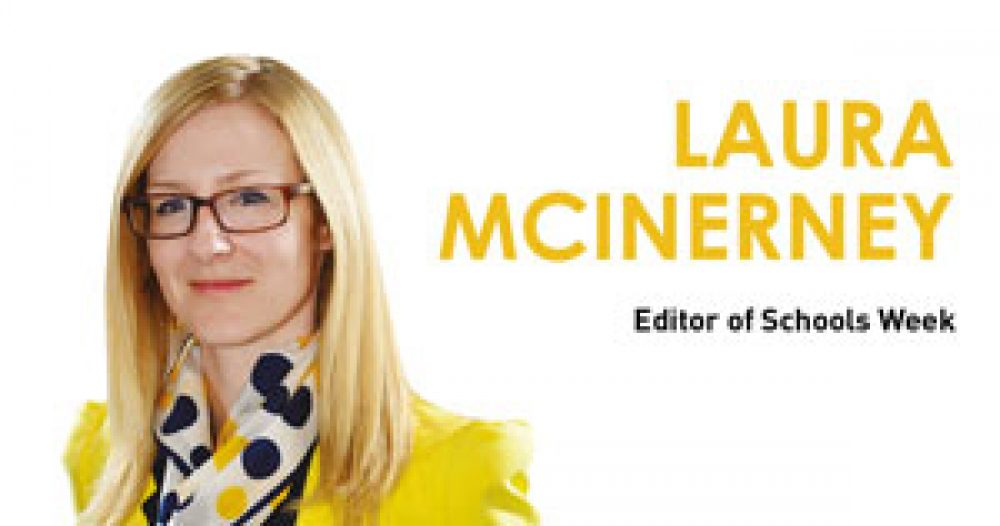In politics there’s a thin line between ‘boring’ and ‘professional’. Over the four days of Liberal Democrat conference in Glasgow, however, the Schools Minister – David Laws – somehow managed to be both.
I knew entering his final session – a Ministerial Q&A – that there would likely be little of note for teachers. A peculiar Liberal Democrats quirk is that their manifesto is genuinely decided by conference delegates, making it difficult for party ministers to reveal unexpected announcements. Anything they’re committing to at this conference, you’ve likely heard already.
It was also the fourth time I’d seen Laws in three days. To be fair, that wasn’t because he was following me.
Still, I worried it would be the same as all his prior speeches and I’d find myself speaking along the words as if it was a Sunday sermon.
Luckily I was wrong.
He did give a reprise of what had gone at the previous shows, where he always opened with his “three key achievements” of the Liberal Democrats in coalition. If you want to sing along, they are:
1. Creating the pupil premium and how it gave money to help the poorest pupils, and – more importantly – made schools focus on their achievement. Something Labour hadn’t managed during government.
2. Extension of free childcare hours for 2 year olds to parents with low incomes.
3.Protection of education budgets in the face of allegedly enormous Tory cuts. The way Laws tells it you’d think the Conservative were ready in 2010 to vapourise the entire schools budget: luckily the Lib Dems saved the day.
However, this time he also went off-piste and spoke voluntarily about the Universal Infant Free School Meals offer. It was the first time he had done so over the three days.
“People said it couldn’t be done” he trumpeted. “But 98.5% of schools are offering hot meals” and, he suggested, the rest are receiving support and guidance to get there.
He admitted some places faced problems but he duly downplayed them. After all, some schools might be struggling to make budgets but who can argue with tiny children getting food in their bellies? The audience clearly didn’t.
Laws also hinted that a future priority for Lib Dems would be ‘teacher professionalism’ though actual policies were thin on the ground. (An alarming trend for all parties this season). At a prior fringe event he mentioned giving each teacher a CPD budget, but that was erased from the piece today.
There was also some political under-bus-chucking with Gove being referred to as the mastermind of several unpopular reforms. Whenever the scrapping of a requirement for teacher qualification was raised, Laws was keen to reiterate that his party was not consulted and they did still want to see changes reversed.
That said, while Laws doesn’t always agree with curriculum changes he also doesn’t want to “pull up the roots” given that teachers are tired of change. When shadow education secretary said something similar at Labour conference, the audience gave him a hard time. Here, members seemed accepting.
Questioners typically asked about specific education policies being advocated in current conference debates. For example, a commitment to have all children learn first aid, or for young carers to be covered under the pupil premium.
Laws made each questioner sound as if the commitment was a worthy aim whilst deftly avoiding making policy promises. Understandable, if annoying.
That lack of commitment to any real education policies beyond not cutting budgets meant that while Laws came across as knowledgeable, there was no concrete future vision for education. Because of that one could almost come away thinking there was no reason to vote Lib Dem other than because “you already are a Lib Dem”.
Perhaps that fits with the way the party works. It isn’t about big set pieces, it’s about compromise.
To some teachers fed up of change I suspect that sounds rather nice. To those wanting to see Gove’s policies overturned, it will sound boring. To David Laws, I suspect, it is simply him being ‘professional’.
Laura McInerney is Editor of Schools Week







Laws claim of 98.5% of schools providing Hot school meals is extremely debatable.
The figure comes from a summer poll of LAs and chains asking if they thought schools would be ready to provide hot meals in September. LAs guesstimated the majority would be yes, though I am unsure if this can be translated into facts on the ground.
I know a number of schools who planed to have hot meals, but due to a variety of issues are actually providing cold meals. I would also question of the LAs know exactly what is happening in school kitchens.
The issue laws ignores ifs the cost of getting there. Both in financial terms and in time effort and stress on school leaders.
What damage has implementing this policy done to school finances, to LA budgets?
What level of disruption are schools enduring?
Many schools will be fine, but some will have issues, but Laws ignores them pretending it is all gone fantastically.
No one doubted that school leaders could implement the policy (more or less) the issue has always been at what cost. That point remains as valid as it ever was.